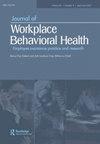了解工作狂的病因:系统综述和荟萃分析结果
IF 0.8
Q3 PUBLIC, ENVIRONMENTAL & OCCUPATIONAL HEALTH
引用次数: 14
摘要
摘要本研究的目的是确定工作狂的前因。为了实现主要目标,进行了系统审查,并进一步补充了元分析数据。此外,在我们的研究中,还试图分离工作狂和工作成瘾的前兆。四个在线数据库被用来搜索文章。收录了2008年至2019年期间发表的33篇文章。系统综述的结果显示,完美主义、外在工作动机和工作需求(工作量、人际冲突和工作中的角色冲突)是导致工作狂水平上升的最重要因素。在进行元分析计算时,神经质、开放性和尽责性变量产生了显著影响。系统综述和荟萃分析的结果都符合这样一种观点,即由于某些人格特征(如神经质)的作用,导致工作成瘾的病因途径可能与导致工作狂的病因途径不同。本文章由计算机程序翻译,如有差异,请以英文原文为准。
Understanding the etiology of workaholism: The results of the systematic review and meta-analysis
Abstract The objective of the present study was to determine the antecedents of workaholism. To attain the main objective, a systematic review was conducted that was further supplemented with the meta-analytic data. Additionally, attempts were made to separate the precursors of both workaholism and work addiction in our study. Four online databases were used to search for articles. Thirty-three articles published during the period between 2008 and 2019 were included. The results of the systematic review revealed that perfectionism, extrinsic work motivation and job demands (workload, interpersonal conflicts and role conflict at work) were the most important factors leading to the increased levels of workaholism. When conducting meta-analytic calculations, variables of neuroticism, openness and conscientiousness gave significant effects. The results of both the systematic review and meta-analysis correspond to the idea that the etiologic pathway to work addiction may differ from that leading to workaholism on account of the role of certain personality traits (such as neuroticism).
求助全文
通过发布文献求助,成功后即可免费获取论文全文。
去求助
来源期刊

Journal of Workplace Behavioral Health
PUBLIC, ENVIRONMENTAL & OCCUPATIONAL HEALTH-
CiteScore
2.40
自引率
6.70%
发文量
14
期刊介绍:
The Journal of Workplace Behavioral Health, retitled from Employee Assistance Quarterly to better reflect its expanded focus, presents innovative research, applied theory, and practical information to keep workplace human service administrators, counselors, and consultants up to date on the latest developments in the field. This refereed journal is an essential guide to best practice and research issues faced by EAP professionals who deal with work-related and personal issues including workplace and family wellness, employee benefits, and organizational development.
 求助内容:
求助内容: 应助结果提醒方式:
应助结果提醒方式:


